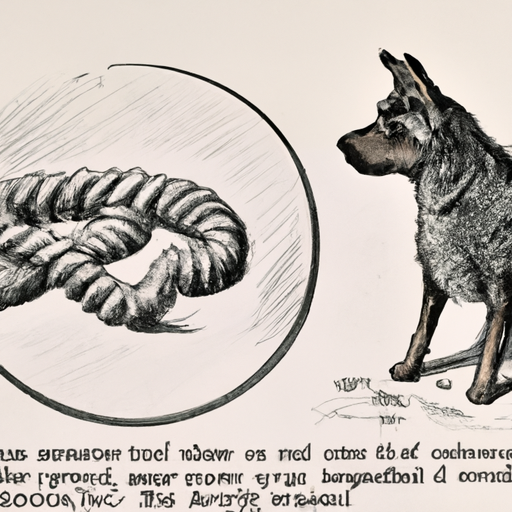Introduction
You’ve likely heard about the common parasites that can plague our beloved canine companions, such as ticks, fleas, and heartworms. But what about whipworms? This lesser-known parasite can pose a significant threat to your dog’s health. As a caregiver, it’s essential to understand what whipworms are and how best to prevent them.
Understanding Whipworms
Whipworms, scientifically known as Trichuris vulpis, are one of the many types of worms that can infect your dog. They are named so due to their whip-like shape, with a thicker posterior end and a long, thin anterior end.
Residing primarily in the dog’s large intestine, whipworms latch onto the intestinal wall, causing inflammation and damage. Adult whipworms can measure up to 2-3 inches in length and are usually not visible to the naked eye in your dog’s feces.
How Dogs Get Infected
Dogs become infected with whipworms by ingesting whipworm eggs. These eggs are often present in infected soil, water, food, or objects contaminated with feces from an infected dog. The lifecycle of a whipworm is as follows:
- A dog ingests whipworm eggs.
- The eggs hatch in the dog’s intestine.
- The larvae mature into adult whipworms, attach to the intestine, and lay eggs.
- The eggs are excreted in the dog’s feces, contaminating the environment and potentially infecting other dogs.
Symptoms and Treatment
Whipworms can cause a range of symptoms in dogs. As a caregiver, you should watch out for:
- Diarrhea (possibly with blood)
- Weight loss
- Anemia
- Dehydration
- General weakness
If you notice any of these symptoms, it’s crucial to take your dog to a vet immediately. The vet will perform a stool test to confirm the presence of whipworms. Treatment typically involves a deworming medication that kills the whipworms, and it may need to be repeated over several weeks to ensure all whipworms and their eggs are eliminated.
| Symptoms | Treatment |
|---|---|
| Diarrhea, Weight loss, Anemia, Dehydration, General weakness | Deworming Medication |
Prevention is Better than Cure
Preventing whipworm infection is far better than having to treat it. Here are some steps you can take:
- Regularly clean up your dog’s feces to prevent environmental contamination.
- Keep your dog’s living area clean and free of feces.
- Ensure your dog has regular veterinary checkups, including fecal examinations.
- Use a monthly heartworm preventive medication that also controls whipworms.
Frequently Asked Questions
Q: Can I get whipworms from my dog?
A: While humans can get whipworms, it’s a different species than the ones that infect dogs. Transmission from dogs to humans is very unlikely.
Q: How often should I deworm my dog?
A: This depends on your dog’s lifestyle and your vet’s recommendations. A standard guideline is to deworm every three months.
Q: Can whipworms be fatal to my dog?
A: In severe cases, whipworms can indeed be fatal, especially when left untreated. This emphasizes the importance of early detection and treatment.
Remember, as a caregiver, your dog’s well-being rests in your hands. Stay informed, stay vigilant, and keep your furry friend whipworm-free!



